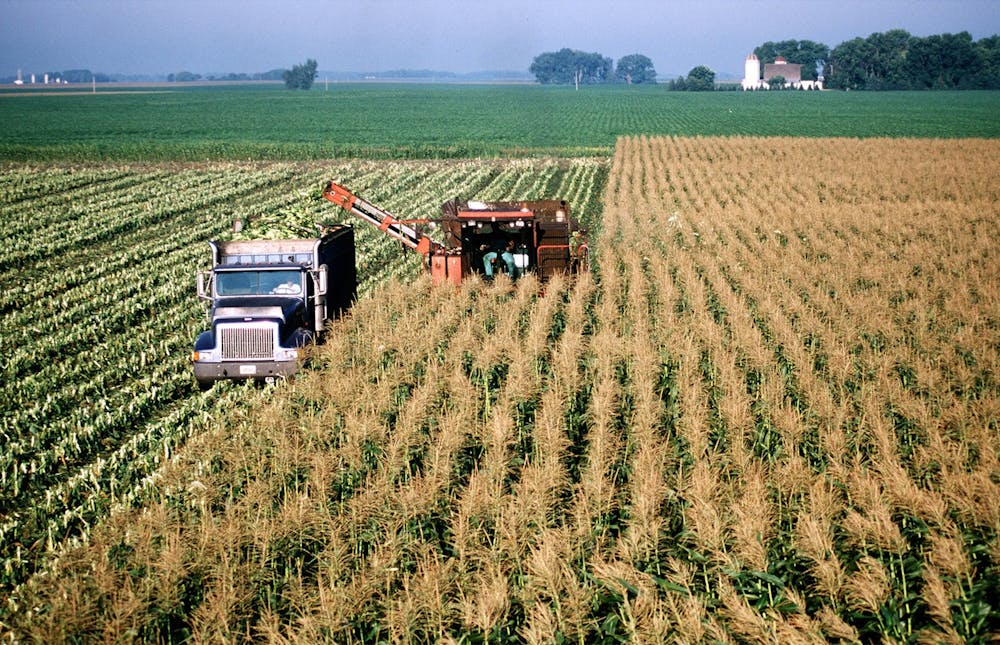A recent NASA study found climate change may decrease corn production by 24% in the next decade. A significant figure compared to previous studies, the study reported this dip may have serious global implications.
As opposed to standard statistical figures, the method of experiment in this study was process based and a bit more complex. With climate change as the isolated variable, each crop underwent a series of simulations to gain information about factors such as increased rainfall and temperature, the study’s lead author Jonas Jägermeyr, Columbia University professor and climate scientist, said.
Jägermeyr said there is still uncertainty, and much of the findings will be clarified on a global scale with future research. With this initial study, he said they’ve gained a larger picture from a general standpoint, and refining their results is now a primary focus.
“Even with the perfect input data, we would still be limited by what we know about how carbon dioxide is actually affecting plant growth,” Jägermeyr said. “We kind of know from experiments, we kind of know from expert knowledge, but to really decide how that will play out will keep us busy for the next couple of years.”
The findings were more striking than the researchers anticipated, Jägermeyr said. While the effects of climate change regarding crops may not be immediately evident, he said farming adaptations, such as switching to a different cultivator, can be made to engender a sustainable future.
“There’s a bunch of other management factors,” Jägermeyr said. “You can expand irrigation, use mulching, conservation tillage, and there’s a list of things that can help build a climate resilient food production system.”
Although a more recent notion, he said climate change is expected to have its winners. While ramifications are globally severe, he added that a crop like wheat, which thrives in higher latitudes, will sow benefits to the respective region. Yet, as is typically the case, areas with the resources to be able to adapt, such as the U.S., have a significant advantage over small scale farmers who grow solely to feed their families, like in Africa.
As for making these changes, Jägermeyr said it will require a systematic and widespread effort.
“It will not be enough to just let the farmer decide for themselves,” Jägermeyr said. “In East Asia, you’re not going to ask people to stop eating rice and switch to wheat. There’s cultural barriers. Science informed, targeted adaptation programs really need policy support, and need to create incentives for farmers to follow through in a meaningful way.”
Working with farmers in the midwest, Landon Yoder, an assistant professor in the Paul O’Neill School of Public and Environmental Affairs, said the farmers already have begun to feel the effects of heavier rainfall and longer dry spells. Although remaining environmentally conscious and making necessary adaptations are important, maintaining steady production financially counteracts it in a way, according to Yoder.
“Values are all across the board in terms of whether farmers would consider themselves to focus primarily on profit, or primarily on an environmentally sustainable operation,” Yoder said.
He is hopeful more practices, such as reduced tillage, will be widely integrated in the coming years.
“There’s a lot of trends towards no-till and reduced tillage,” Yoder said. “It’s a combination of a number of things, we just have to wait and see whether farmers will start to adopt those more readily.”




